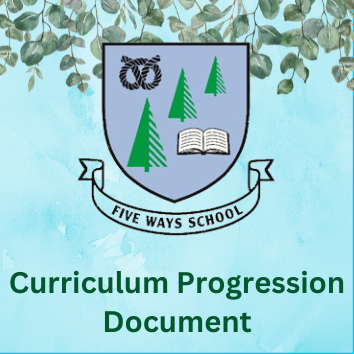Geography
Please click icon above for the Geography Curriculum Progression document.
Intent
At Five Ways Primary School, our intent is that a Geography curriculum should encourage children to develop a sense of curiosity and wonder about the world they live in. We believe that children should be encouraged to be aware of the environmental challenges facing today’s modern world and children should be taught to consider how they could make their world a better place.
We believe that our curriculum builds foundations and knowledge for understanding the world around us through practical and engaging Geography lessons. To inspire our children to become confident global citizens of the future, we ensure that our curriculum offers varied and frequent fieldwork opportunities. By participating in fieldwork projects, children will develop a good understanding of the impact of human development on the natural and physical world around them. Children will also extend their natural curiosity about the world and what they observe, to promote respect for the environment and cultures different to their own.
Our Geography curriculum is designed to give children the opportunity to develop their confidence when using subject-specific language. This language will be used to describe, question, discuss and reason about the world, as well as their place in it. Throughout debatable topics, such as deforestation or the impact of climate change, children will be encouraged to express their own voice with passion. Our Geography curriculum aims to produce individuals with an overarching understanding of all aspects of the world around them.
Implementation
Our Geography curriculum is planned in line with the knowledge and skills outlined in the National Curriculum and the individual needs of our children. We have created a knowledge and skills overview, which clearly demonstrates the elements of Geography that are to be taught within each year group. At Five Ways, Geography topics are taught on a half-termly basis, alternating alongside History. This allows for ‘golden threads’ to be made across these subjects in particular. Teachers of Geography are encouraged to use a variety of question types (outlined in Blooms Taxonomy) to promote enquiry, investigation, and discussion in the classroom. Key geographical knowledge and language (such as continents, countries, capital cities and oceans) is revisited frequently to embed learning into the children’s long-term memory so that it is easy to retrieve for future learning in the curriculum.
We support learning with trips to inspire our children and widen their cultural experiences. For example, in KS1, children are taken on a learning walk around the school and our local village, Heath Hayes, to make comparisons between human and physical features in two different environments. From this fieldwork opportunity, children in KS1 will be able to begin to interpret simple map views of different areas local to us. In KS2, children learn about the world around them during forest school practical sessions. During these sessions, children have knowledgeable discussions using subject-specific terminology about caring for their surrounding environment. As well as providing practical experiences, teachers are encouraged to use a variety of resources such as videos, photographs, maps, and atlases to create an immersive experience as part of their Geography teaching.
Impact
By the end of KS2, children at Five Ways will have an increased knowledge and understanding of Geography and the world they live in. Children will have developed a positive attitude and they will be motivated about their Geography learning ahead of KS3. Children will be able to apply skills learned in Geography to other areas of the curriculum, making meaningful connections in purposeful contexts. Through the fieldwork opportunities given and the high standard of teaching in Geography lessons, children will have a confident understanding that Geography regularly influences our daily lives. The impact of Geography at Five Ways Primary School is measured by monitoring pupil’s work, engaging in knowledgeable discussions, taking learning walks around school and through data analysis.









